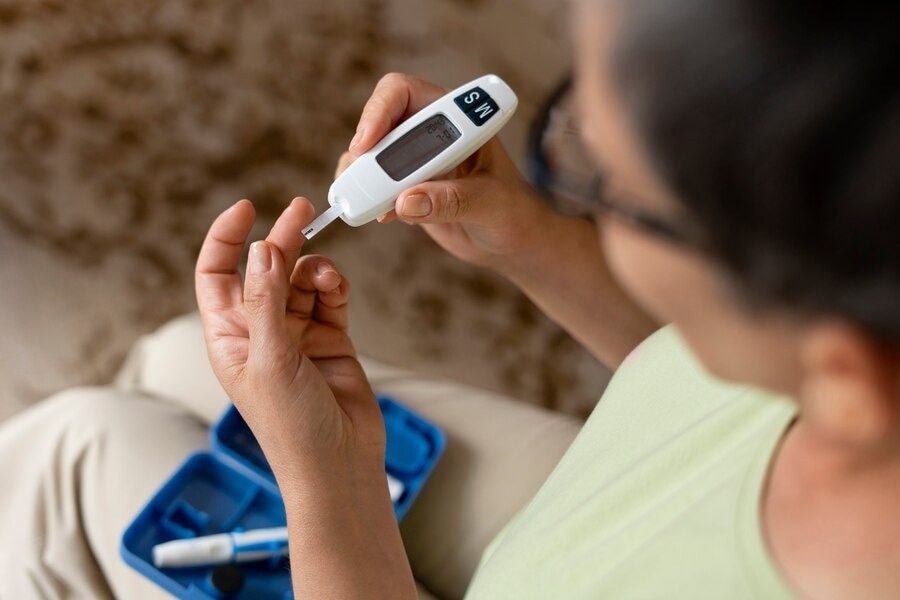In this article, we have focused on the increased risk of infections among diabetics during the monsoon season and also highlighted the role of adult vaccination in preventing these diseases.
The monsoon season brings relief from the heat with its cool rains, but for those with diabetes it also brings increased risks of contracting infections. Combined with the constant threat of influenza, this season calls for heightened awareness and proactive measures, including vaccination of adults, to protect health.
Photo Gallery: Are you diabetic? Avoid these high glycemic index foods
Diabetes control during monsoon
Diabetes mellitus remains a pressing health issue in India, posing significant challenges due to its increasing prevalence and substantial impact on healthcare resources. High humidity and constant wetness during the monsoon create a breeding ground for bacteria and fungi. For diabetics, who already face increased risks of infections due to compromised immune systems and poor blood circulation, this is especially worrying.
Common infections during monsoon:
- Foot infections: Diabetic neuropathy reduces sensation in the feet, so walking in wet conditions or wearing wet shoes can lead to unnoticed injuries that can become infected.
- Fungal infections: Warm, moist environments can lead to fungal infections, especially in areas such as the feet, groin, and armpits.
- Respiratory infections: Humidity can worsen respiratory problems, increasing the risk of bronchitis, pneumonia and other respiratory infections.
- Influenza affects the respiratory system and can lead to serious complications, including pneumonia, bronchitis, and hospitalization, especially for diabetics. Influenza can also cause fluctuations in blood sugar levels, making diabetes management more difficult.
Importance of vaccination in adults
Vaccination is a key method to prevent infections and protect health, especially for adults with chronic diseases such as diabetes. However, due to low awareness of the need and availability of vaccines, uptake remains low. This leads to serious complications from vaccine-preventable diseases, often resulting in hospitalizations and increased mortality. In addition, the urban-rural gap poses a major challenge in providing access to healthcare for all. Cultural beliefs, misinformation, and concerns about vaccine safety further contribute to vaccine hesitancy. The main vaccines recommended for adults with diabetes are:
1. Flu vaccine: The annual flu vaccine is essential for people with diabetes to protect themselves against seasonal flu and its complications.
2. Pneumococcal vaccine: This vaccine protects against pneumococcal diseases such as pneumonia, meningitis, and bloodstream infections.
3. Tetanus, diphtheria, and pertussis (Tdap) vaccine: This combination vaccine protects against tetanus, diphtheria, and pertussis (whooping cough). A booster dose is recommended every 10 years.
4. Hepatitis B vaccine: Given the increased risk of hepatitis B among people with diabetes, vaccination is recommended for those who have not been previously vaccinated.
Conclusion
According to Dr Rajiv Kovil, Director of Diabetes at Zandra Healthcare and Co-Founder of the Rang De Neela Initiative, “The monsoon season brings with it challenges, so it is critical for people with diabetes to be proactive about their health. Understanding the risks of infections and the importance of vaccinations can make a significant difference in preventing complications. By taking preventative measures, staying up to date with vaccinations, and managing diabetes effectively, you can enjoy a healthier, more vibrant life despite seasonal threats. Stay informed, protected, and take control of your health this monsoon season.”
This article aims to highlight the risks associated with infections in the diabetic population during the monsoon season and the importance of adult vaccination to prevent these infections. By spreading awareness and encouraging proactive health measures, we can collectively work towards a healthier community.
